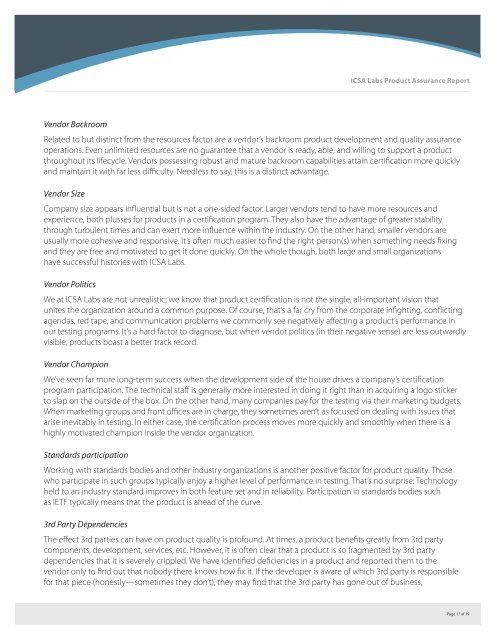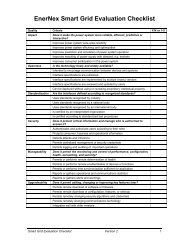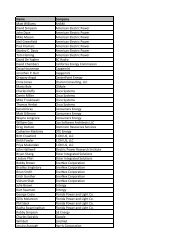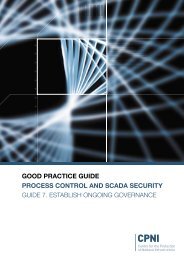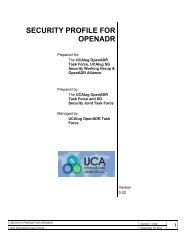ICSA Labs Product Assurance Report - Verizon Business
ICSA Labs Product Assurance Report - Verizon Business
ICSA Labs Product Assurance Report - Verizon Business
Create successful ePaper yourself
Turn your PDF publications into a flip-book with our unique Google optimized e-Paper software.
<strong>ICSA</strong> <strong>Labs</strong> <strong>Product</strong> <strong>Assurance</strong> <strong>Report</strong>Vendor BackroomRelated to but distinct from the resources factor are a vendor’s backroom product development and quality assuranceoperations. Even unlimited resources are no guarantee that a vendor is ready, able, and willing to support a productthroughout its lifecycle. Vendors possessing robust and mature backroom capabilities attain certification more quicklyand maintain it with far less difficulty. Needless to say, this is a distinct advantage.Vendor SizeCompany size appears influential but is not a one-sided factor. Larger vendors tend to have more resources andexperience, both plusses for products in a certification program. They also have the advantage of greater stabilitythrough turbulent times and can exert more influence within the industry. On the other hand, smaller vendors areusually more cohesive and responsive. It’s often much easier to find the right person(s) when something needs fixingand they are free and motivated to get it done quickly. On the whole though, both large and small organizationshave successful histories with <strong>ICSA</strong> <strong>Labs</strong>.Vendor PoliticsWe at <strong>ICSA</strong> <strong>Labs</strong> are not unrealistic; we know that product certification is not the single, all-important vision thatunites the organization around a common purpose. Of course, that’s a far cry from the corporate infighting, conflictingagendas, red tape, and communication problems we commonly see negatively affecting a product’s performance inour testing programs. It’s a hard factor to diagnose, but when vendor politics (in their negative sense) are less outwardlyvisible, products boast a better track record.Vendor ChampionWe’ve seen far more long-term success when the development side of the house drives a company’s certificationprogram participation. The technical staff is generally more interested in doing it right than in acquiring a logo stickerto slap on the outside of the box. On the other hand, many companies pay for the testing via their marketing budgets.When marketing groups and front offices are in charge, they sometimes aren’t as focused on dealing with issues thatarise inevitably in testing. In either case, the certification process moves more quickly and smoothly when there is ahighly motivated champion inside the vendor organization.Standards participationWorking with standards bodies and other industry organizations is another positive factor for product quality. Thosewho participate in such groups typically enjoy a higher level of performance in testing. That’s no surprise: Technologyheld to an industry standard improves in both feature set and in reliability. Participation in standards bodies suchas IETF typically means that the product is ahead of the curve.3rd Party DependenciesThe effect 3rd parties can have on product quality is profound. At times, a product benefits greatly from 3rd partycomponents, development, services, etc. However, it is often clear that a product is so fragmented by 3rd partydependencies that it is severely crippled. We have identified deficiencies in a product and reported them to thevendor only to find out that nobody there knows how fix it. If the developer is aware of which 3rd party is responsiblefor that piece (honestly—sometimes they don’t), they may find that the 3rd party has gone out of business,Page 17 of 19


